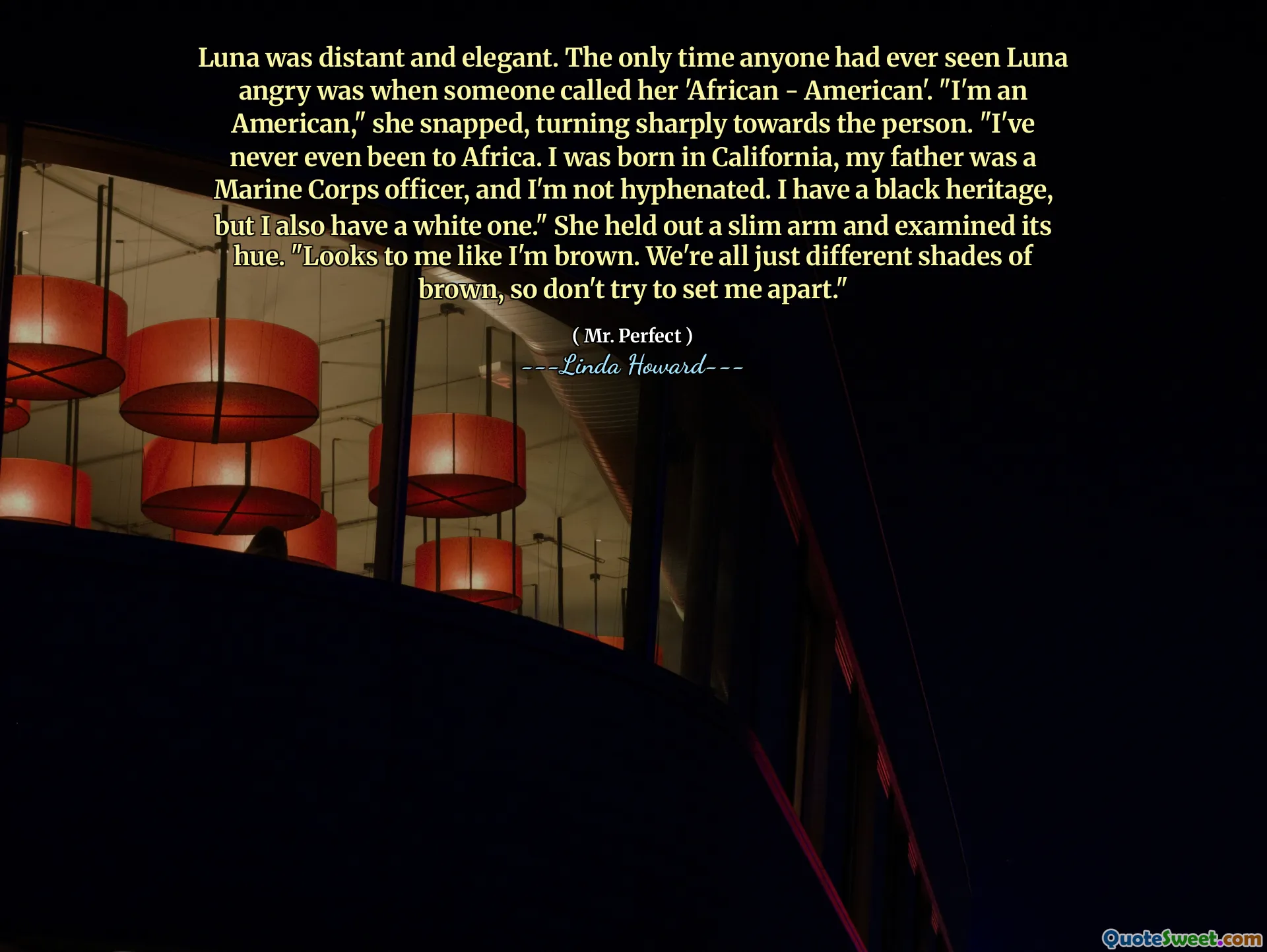
Luna was distant and elegant. The only time anyone had ever seen Luna angry was when someone called her 'African - American'. "I'm an American," she snapped, turning sharply towards the person. "I've never even been to Africa. I was born in California, my father was a Marine Corps officer, and I'm not hyphenated. I have a black heritage, but I also have a white one." She held out a slim arm and examined its hue. "Looks to me like I'm brown. We're all just different shades of brown, so don't try to set me apart."
This quote beautifully underscores the complexities surrounding identity and heritage in a multicultural society. Luna's assertive response highlights the often oversimplified labels we assign to ourselves and others, emphasizing that racial and cultural identities are nuanced and can't be reduced to stereotypes or hyphenated categories. Her declaration that she is American, with both Black and White heritage, challenges societal tendencies to compartmentalize and categorize individuals based on superficial characteristics or assumptions. By pointing out that she is simply a shade of brown, Luna advocates for recognising our shared humanity beyond label-based distinctions, fostering an inclusive perspective that appreciates diversity without division. This reflection is particularly relevant in contemporary discussions about identity, race, and belonging, encouraging us to look beyond labels and see the person in their full complexity. It also serves as a reminder that heritage and identity are personal, multifaceted, and not confined to national boundaries or racial labels. Embracing this understanding can promote greater acceptance and unity, acknowledge individual experiences, and move towards a more compassionate society where differences are celebrated rather than used to separate us.






